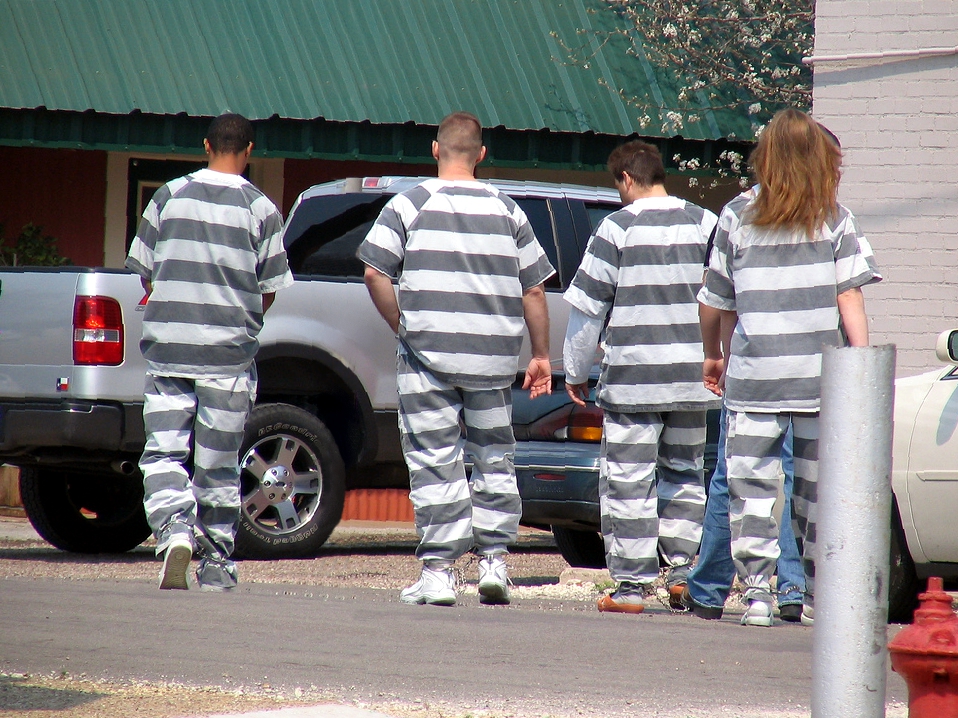
Please Follow us on Gab, Minds, Telegram, Rumble, Gab TV, GETTR, Truth Social
Americans in five states will have the opportunity to vote on slavery initiatives this November. It comes in the form of raising the question of whether it is legal to force convicts to work while incarcerated.
The effort is part of a national push to amend the 13th Amendment to the U.S. Constitution that abolished slavery and involuntary servitude except as a form of criminal punishment.
“The idea that you could ever finish the sentence ‘slavery’s okay when ... ’ has to rip out your soul, and I think it’s what makes this a fight that ignores political lines and brings us together because it feels so clear,” said Bianca Tylek, executive director of Worth Rises, a criminal justice advocacy group.
According to Worth Rise’s website, “Incarcerated people who refuse to work are often beaten, denied visits and calls, put in solitary confinement, and even denied parole.”
Nearly 20 states have constitutions that include language permitting involuntary servitude as criminal punishment.
In 2018, Colorado was the first to remove the language by a ballot measure, followed by Nebraska and Utah in 2020.
In November, the issue will be on the ballot in Alabama, Louisiana, Oregon, Tennessee, and Vermont.
Vermont was the first state to abolish slavery in 1777, but its state constitution still allows involuntary servitude in a handful of circumstances. Its proposed change would replace the current exception clause with language saying, ”slavery and indentured servitude in any form are prohibited.”
Oregon’s proposed change would repeal its exception clause and add language that allows a court, probation official, or parole agency to order alternatives to incarceration as part of sentencing.
Louisiana’s Constitution currently states that “Slavery and involuntary servitude are prohibited, except in the latter case as punishment for a crime.”
The amendment on the ballot would change that clause to read, “Slavery and involuntary servitude are prohibited, (but this) does not apply to the otherwise lawful administration of criminal justice.”
Subscribe to our evening newsletter to stay informed during these challenging times!!
The most engaging first-hand account of prison slavery I've read is by a former Majestic operator (in the Nazi-run U.S. secret space program) named "Robert" who has been disclosing details of the Majestic program for a few years from his home in China.
Robert claims that most Majestic agents were hastily retired in 2005 by an unusual method: they were all lured to a prison-labor state like Arkansas and accused of sex crimes. Because the NSA and FBI are Cabal and plant child porn on computers they seize, these agents were over-charged and most took a deal. (Robert's MAJ associate, 'Sebastian,' took his case to trial and got 60 years.)
"When my group was 'retired' it was very cold, calculating."
"It was methodical and ruthless. I was targeted for 'disable and discard'. A chick came into my life. Dragged me to Arkansas on the promise of a great job and a new life, poisoned the living shit out of me with heavy metals while having me sign away on multiple life insurance policies."
"The most common way to retire MAJestic agents is to accuse them as Sex Offenders, sentence them to Hard Labor, and then a lifetime of monitoring as part of the Sex Offender registry. That way, MAJestic no longer needs to worry about the agents, instead, they are being watched and observed by the state government and paid for out of the state budgets."
When the MAJ agents got out of prison, they were under lifelong monitoring and found it hard to obtain decent employment or housing. This was particularly hard because all MAJ operators were military veterans with engineering degrees. This is the reason Robert moved to China, where he had some money and a few friends.
Here is a link to Robert's Arkansas Department of Corrections writings. A warning: Although Robert is the best writer doing SSP disclosure and tells his stories wonderfully, he is a Freemason and has an unwholesome obsession with young women. He is not someone you would want to socialize with.
https://metallicman.com/laoban4site/what-life-is-like-inside-the-adc-prison-in-arkansas/
According to Old Testament law, criminals were required to fully restore damages caused to a victim. That sometimes required working off the debt. For anyone to profit from criminals simply guarantees there will be more criminals.
Punishment was always a secondary consideration. Justice always meant primarily repairing any damages caused to other people. Further, the death penalty was never primarily for punishment, it was intended to protect others by removing from society people who were too dangerous to remain.
So the so-called justice system is completely immoral from one end to the other.
Back in the late 90’s, my first trip to South Carolina we saw chain gangs picking up trash along the side of the road. I was surprised they still did that but I’m sure they were a lot happier being outside doing easy work instead of being in a cell all day.